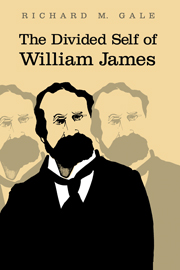Book contents
- Frontmatter
- Contents
- Acknowledgments
- Introduction
- The Promethean Pragmatist
- 1 The Ethics of Prometheanism
- 2 The Willfulness of Belief
- 3 The Freedom of Belief
- 4 The Will to Believe
- 5 The Ethics of Truth
- 6 The Semantics of “Truth”
- 7 Ontological Relativism: William James Meets Poo-bah
- The Anti-Promethean Mystic
- Appendix
- Bibliography of Works Cited
- Index
2 - The Willfulness of Belief
Published online by Cambridge University Press: 05 June 2012
- Frontmatter
- Contents
- Acknowledgments
- Introduction
- The Promethean Pragmatist
- 1 The Ethics of Prometheanism
- 2 The Willfulness of Belief
- 3 The Freedom of Belief
- 4 The Will to Believe
- 5 The Ethics of Truth
- 6 The Semantics of “Truth”
- 7 Ontological Relativism: William James Meets Poo-bah
- The Anti-Promethean Mystic
- Appendix
- Bibliography of Works Cited
- Index
Summary
As seen in the previous chapter, it is James's contention that
2′. Belief is an action.
which, it will be recalled, was the second premise of his syllogistic argument for the conclusion that
3. We are always morally obligated to believe in a manner that maximizes desire-satisfaction over the other available belief options.
For the argument to work, however, the second premise must be beefed up to assert that
2. Belief is a free action.
the reason being that premise 3 morally obligates us to believe in a certain manner but we can have a moral obligation to act in a certain way only if we are free to do so. This chapter will concentrate on James's argument for belief being an action, leaving its freedom for Chapter 3 and our justification for believing in its freedom to Chapter 4. His overall argument for belief being an action is based on his identification of belief with the will, and the will, at least in one of its senses, with effortful attention to an idea. Since effortful attention is something that we can do intentionally or voluntarily, it follows, by Leibniz's law of the indiscernibility of identicals, that belief also is an intentional action, and thereby, provided it is free, subject to the casuistic rule
1. We are always morally obligated to act so as to maximize desiresatisfaction over the other options available to us.
- Type
- Chapter
- Information
- The Divided Self of William James , pp. 50 - 71Publisher: Cambridge University PressPrint publication year: 1999



